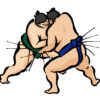What is the meaning of Omayuu? Omaiu? おまゆう おまいう

“Omayuu" is an SNS word/phrase that has been used in recent years in Japan.
The word originated in a bulletin board called “2 channel (it is now “5 channel") and is often used elsewhere as well, especially among the young people.
This is an abbreviation for “Omae ga iuna” and is used like this;
「待って、おまゆう?(Matte, omayuu?)」
「それはおまゆうだから!(Sore wa omayuu dakara!)」
「はあ?それ、おゆうだろ (Haa? Sore, omayuu daro)」
「いつまで起きてるの?(おまゆう)(Itsu made okiteru no? (omayuu)」
「完全なるおまゆうw (Kanzen naru omayuu w)」
「ちょwおまゆうだわそれ (Cho w omayuu dawa sore)」
Let’s take a close look at the meaning and of the word.
Meaning of “Omayu”? How to use it?
“Omayu" is an abbreviation of “Omae ga iuna".
The direct meaning is “You, don’t say that."
If you want to say it in English, it goes like:
“Look who’s talking."
“You are the last person to say that!"
“Who are you to say that?"
“That’s not for you to say!"
Don’t you know somebody around you, whose remark is like that?"
おまえ が いうな(Omae ga iuna)
おまえ:Omae (you – until the Edo period, it was used for calling a person with respect, but after the Meiji period, the meaning has changed to calling a person of the same or a subordinate level.)
が:ga (particle)
いうな:iuna (iu (say, tell) + na (a particle indicating prohibition)
So, “oma" from “omae" and “iu" from “iuna" becomes “omayuu".
What?
Confusing, isn’t it?
Well, it’s a slang after all, but if you pronounce it properly, it should be “oma-iu". And yes, this form is also used.
However, in a spoken way or in the Kansai pronunciation, “iu" is very often pronounced “yuu" so “omayuu" is more frequently used.
So, both “omayuu" and “omaiu" are actually correct forms.
Eexamples of “omayuu" “omaiu"
A (who is not punctual): 「おい、明日遅刻するなよ」
Oi, ashita chikoku suruna yo.
(Hey, don’t be late tomorrow.)
B: 「待って、おまいう?」
Matte, omayuu?
(Wait, are YOU telling me not to be late?)
A (who often speaks behind someone’s back) :「あの子悪口ばっかりでうんざりするわー」
Anoko warukuchi bakkari de unzari suru wa-.
(I’m just tired of her speaking ill against people all the time! )
B: 「はあ?それ、おゆうだろ」
Haa? Sore, omayuu daro.
(What? You are the last person to say that.)
A (who scratched a car before): 「車を傷つけないように車庫入れしろよ」
Kuruma wo kizu tsukenai you ni shakoire shiro yo.
(Just be careful not to scratch the car when you put it the garage.)
B: 「完全なるおまゆうw (Kanzen naru omayuu)」
(Look who’s talking.)
Kanzen means “completely", so in this case, B expresses his/her strong feeling that the word “omayuu" exists right for A.
A (who is posting his/her comment on SNS in a train/bus) 「妊婦さんがいるんだから誰か席を譲ればいいのに」
Ninpu san ga irundakara dareka seki wo yuzureba iinoni.
I wish somebody gave his/her sheet for the pregnant lady.
B: 「それおまいう」
Sore omaiu.
(B thinks the person who should give a sheet is A instead of playing SNS in his/her sheet.)
Recently, a Japanese politician has used “omayuu" in his tweet comments to argue against a man who is an ex-politician and also an ex-comedian.
That became a topic in Japan because such a word “omayuu" was thought to be used only on SNS or between friends.
Even so, many people feel this word should be used on SNSs. It will sound inappropriate an office or a formal situation.
As you can imagine it was young people who made this word and many people don’ like to hear if an adult, who is supposed to speak proper language suitable for their age, say “omayuu".
It becomes even shorter
“Such a slang tends to get shorter.
Some people say;
“おま(oma)" or
“おま(ry (oma(ry )"
“Ry" is also a net slang meaning “略(りゃく、ryaku)(abbreviation)".
So, the person who typed “おま(ry" could mean “I only say “oma" and you can guess the rest" or “I just can’t bother to say the whole “omayuu".
If he/she can type “(ry", the person could just type the whole “omayuu" though, I think.
















